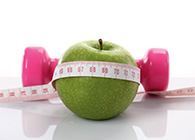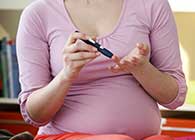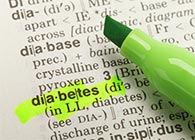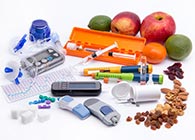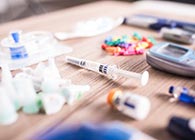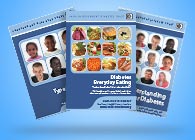Breastfeeding and Weaning
Facts
Pre-conception
Pregnancy
Caesarean Section
Report – Diabetes in Pregnancy: Caring for baby after birth [2007]
Breastfeeding and Weaning
Gestational Diabetes
![]()
Breastfeeding and Weaning
A great deal is published about pregnancy and women with diabetes but what about after the birth? It is difficult to find research that deals with the effects of breast on diabetic mums and the control of their diabetes. There seems to be even less information on how to deal with weaning and advice is usually given on the basis of common sense.
Breast Feeding
A great deal is published about pregnancy and women with diabetes but what about after the birth? It is difficult to find research that deals with the effects of breast feeding on diabetic mums and the control of their diabetes.
There is no reason why women with diabetes should not breast feed like any other mum. Breast milk production uses a lot of glucose/carbohydrate from the mother’s supply so it is important to avoid hypoglycaemia by lowering insulin doses as necessary. According to the Nutritional Subcommittee of Diabetes UK, [Diab Med 20.786-807] the high energy needs of lactation mean that a mother is likely to require an extra 40-50g carbohydrate per day compared with pre-pregnancy amounts. Extra carbohydrate may be required before going to bed while the baby is still having night feeds. However, once breastfeeding stops, insulin doses and carbohydrate intake will need to be changed.
Although only small, a recently published study [Pract Diab Int October 2003, Vol.20 No.8] showed:
- In both breastfeeding and non-breastfeeding mothers with Type 1 diabetes, glucose levels were lower during the first week after delivery.
- Insulin requirements remained lower than before pregnancy throughout the 2 months after the baby is born, whether the mothers were breastfeeding or not.
- Hypoglycaemia does not occur more frequently during or immediately after breastfeeding.
Weaning
There seems to be even less information on how to deal with weaning and advice is usually given on the basis of common sense.
If you have been doing a lot of regular exercise and then you stop your blood sugars would go up unless you either ate less or increased insulin doses. The same applies when milk production ceases when the child is weaned.
Although there is little research on this, the general advice for diabetic mums is that weaning should be done gradually so that adjustments in diet and insulin can be slow and smooth. Natural weaning where the child outgrows his/her need for breastfeeding, is the easiest to allow the mother’s body to adjust. But if there is an active decision to wean the baby, then reducing breastfeeds by no more than one feed per week seems to be the general advice. This enables blood glucose control to be more easily managed.
For copies of IDDT’s leaflet on Pregnancy and Diabetes or IDDT’s Pregnancy Information Pack, contact:
IDDT
PO Box 294
Northampton
NN1 4XS
tel: 01604 622837
e-mail: [email protected]



